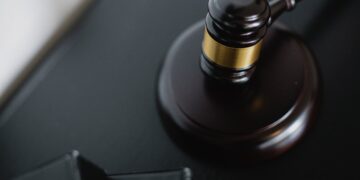In many criminal trials, defendants don’t put on an affirmative case. In other words, they don’t call their own witnesses or offer their own exhibits. But, in two recent federal district court cases, the defendants did put on an affirmative case. And those cases highlight some evidentiary issues worth discussing.
The cases are United States v. Kachkar, No. 16-20595-CR, 2020 WL 7021590, at *6 (S.D. Fla. Nov. 30, 2020) and United States v. Londono, No. 10-20763-CR, 2018 WL 11237167, at *1 (S.D. Fla. June 12, 2018). Both trials were presided over by the Honorable Donald L. Graham.
A. Kachkar
The Kachkar case is a reminder about the challenges a party faces when it seeks to offer emails as evidence. In that case, the defendant, Kachkar, was charged with wire fraud stemming from his alleged fraudulent representations to a bank. At trial, Kachkar offered emails between lawyers for the alleged victim bank and a former employee of Kachkar’s company. In those emails, the former employee and the lawyers discussed settling a lawsuit that the bank had filed against the former employee, Kachkar, and others in Puerto Rico. The government objected, arguing that the emails included inadmissible hearsay. Kachkar countered by arguing that the emails qualified as “business records” of the bank and, thus, fell within the business records exception to the rule against hearsay.
By way of background, under Rule 803(6), “[a] record of an act, event, condition, opinion, or diagnosis” is admissible for the truth of the matter or matters asserted within the record if the proponent of the record can show that the record satisfies three elements: (A) the record was “made at or near the time” of the relevant act/event/condition etc. by “someone with knowledge” or “from information transmitted by . . . someone with knowledge”; (B) the record was “kept in the course of a regularly conducted activity of a business”; and (C) the record was made as “a regular practice of that [business] activity.” Fed. R. Evid. 803(6)(A)-(C).
Ultimately, Judge Graham held that the emails failed to satisfy the third hurdle (i.e., the emails were not sent as part of the regular practice of the bank’s business activity). Judge Darrin P. Gayles, reviewing Judge Graham’s ruling on remand from the Eleventh Circuit, agreed. In so doing, Judge Gayles distinguished the emails at issue from the kinds of routine, “banking business” emails a bank might send. He wrote:
“The trial judge correctly excluded the emails at issue. Email communications sent from, or received by, a bank regarding a loan debt might properly be considered part of that bank’s regularly conducted business activity. See United States v. Cone, 714 F.3d 197, 220 (4th Cir. 2013). But, for ‘properly authenticated e-mails [to] be admitted into evidence under the business records exception, it would be insufficient to survive a hearsay challenge simply to say that since a business keeps and receives e-mails, then ergo all those e-mails are business records falling within the ambit of Rule 803(6)(B).’ Id. As the email communications here were between lawyers to negotiate a settlement with [the former employee] and another individual in Westernbank’s lawsuit, the trial judge properly excluded them as hearsay. The fact that an officer of the bank was copied on and retained the emails does not change the hearsay nature of those communications. See id.”
The Kachkar case is a good reminder that just because businesses regularly use emails to conduct their business does not necessarily bring all such emails within the ambit of the business records exception. The emails need to concern something the business routinely handles and, ultimately, the emails should be the vehicle through which the business “records” the event in question (think, for example, a hardware store employee who, after accepting a delivery of widgets, regularly emails his manager the number of widgets that were delivered).
If you want to read more about the challenges in qualifying emails as business records, check out the post below.
B. Londono
The Londono case is a useful reminder on two points—(1) how a criminal defendant might get around the hearsay hurdle when offering emails and (2) the importance of timing when it comes to offering evidence.
In that case, the defendant, Londono, was charged with conspiring to distribute five or more kilograms of cocaine. Before trial, Londono, similar to the defendant in Kachkar, sought the ability to offer emails into evidence. But, critically, unlike in Kachkar, these emails were between government agents and a confidential informant. The government opposed the admission of the emails. As to the hearsay issue, Londono argued that the emails were excluded from hearsay rule.
By way of background, under Federal Rule of Evidence 801(d), certain out-of-court statements—even when offered to prove the truth of the matters asserted in the statements—are deemed “not hearsay.” One such statement is “[a]n opposing party’s statement.” Fed. R. Civ. P. 801(d)(2). Londono argued that the emails qualified under 801(d)(2)(D), as the emails were sent and received by agents or employees of an opposing party, that opposing party being the United States.
In a pre-trial ruling, Judge Graham, for the most part, agreed, holding that the emails could so qualify. But, critically, he ruled that Londono would still need to establish the relevance of the emails at trial. Judge Graham’s hearsay ruling is a helpful reminder to criminal defendants that a hearsay exclusion that is often used against them—the rule excluding statements of an “opposing party”—cuts both ways.
But, ultimately, the emails were never admitted into evidence, which brings us to the second point worth discussing. At trial, Londono failed to offer the emails during his case-in-chief. Instead, after resting his case and minutes before closing arguments, Londono attempted to move the emails into evidence.
Of course, that was too late. Before an email may be offered into evidence, a party must satisfy numerous hurdles beyond the hearsay hurdle, including (i) authenticating the email (i.e., showing that it is what the proponent claims it to be—in this case, an email between a government agent/confidential informant) and (ii) establishing that the email is relevant. Londono had done neither. Of course, a trial judge has discretion to re-open the evidentiary phase of the trial. United States v. Byrd, 403 F.3d 1278, 1283-84 (11th Cir. 2005) (outlining factors a court should consider). But a trial judge’s decision to open or not re-open the evidentiary phase of a case will rightly (and rarely) be second guessed on appeal. In this respect, the Londono decision underscores how important timing can be when it comes to the offering of evidence.











